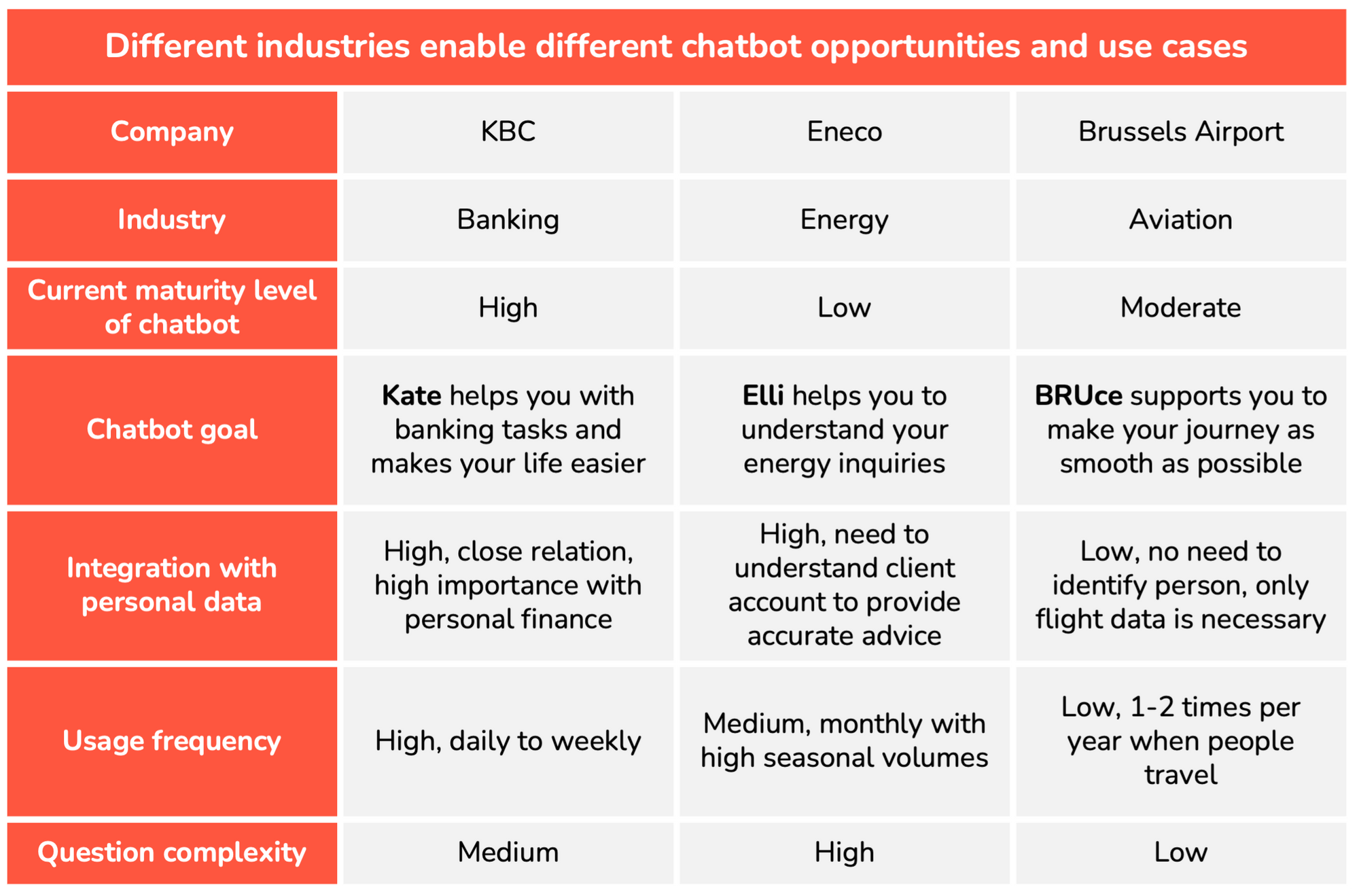Chatbots and Generative AI are innovating customer service in many industries, fundamentally overhauling how customers and employees can access information. The technology has the potential to dramatically decrease the cost-to-serve a customer while also adding more value to interactions.
We brought together industry experts from KBC, Eneco, and Brussels Airport to discuss the opportunities and challenges chatbots entail.
Because of the nature of each industry these companies operate in and their maturity levels, they have very different needs and approaches to deploying chatbots in their customer service strategy.
Joining our webinar were Niels Bex, product owner of Kate (KBC), Ellen Van Caillie, Digital Interactions Manager (Eneco), Daan Decat, Head of Digital & Data Analytics (Brussels Airport Company) and our very own Michiel Baets, partner at Seven Beaufort and Product Owner of BRUce.
Here’s what stuck with us after the webinar:
1. Chatbots present a double opportunity
Firstly, chatbots increase customer satisfaction as customers can ask questions 24/7 and are provided with instant answers. Compared to a phone call or an appointment, a chatbot provides a more accessible platform for inquiries. This results in more questions being asked and answered through a chatbot than through traditional channels. This provides the company with more insights into possible pain points experienced by customers and hence, positively impacts customer service.
Secondly, the implementation of a chatbot results in cost savings and efficiency gains in call centers that can focus on more complex inquiries.
2. Human clarity is key
Customers expect the chatbot’s language to be empathic and humanlike. Users want to feel like they are in a real conversation, not just reading an FAQ page. However, it should always remain clear to the customer that they are speaking to a robot and not a human. Pretending otherwise can harm the customer’s experience and relationship with the company.
3. Chatbots raise the bar
While customer satisfaction increases when a chatbot is available 24/7, it does also create expectations for other channels in customer service. The implementation of a chatbot should always fit in as a part of the holistic customer service strategy.
4. A chatbot that works for you does not work for me
Chatbot requirements, use cases and implementations vary widely across different industries, taking up a different spot in the customer service strategy.
The crucial role of Kate, a high-performing personal assistant at KBC in Banking, the unique complexities faced by Eneco in the Energy sector with Elli, and the specialized focus on passenger experience of BRUce by Brussels Airport in the Aviation industry.
![[object Object]](https://umsousercontent.com/lib_SgVrTchGksgQdBiV/5to2tmehoshuavn2.png?w=306)

